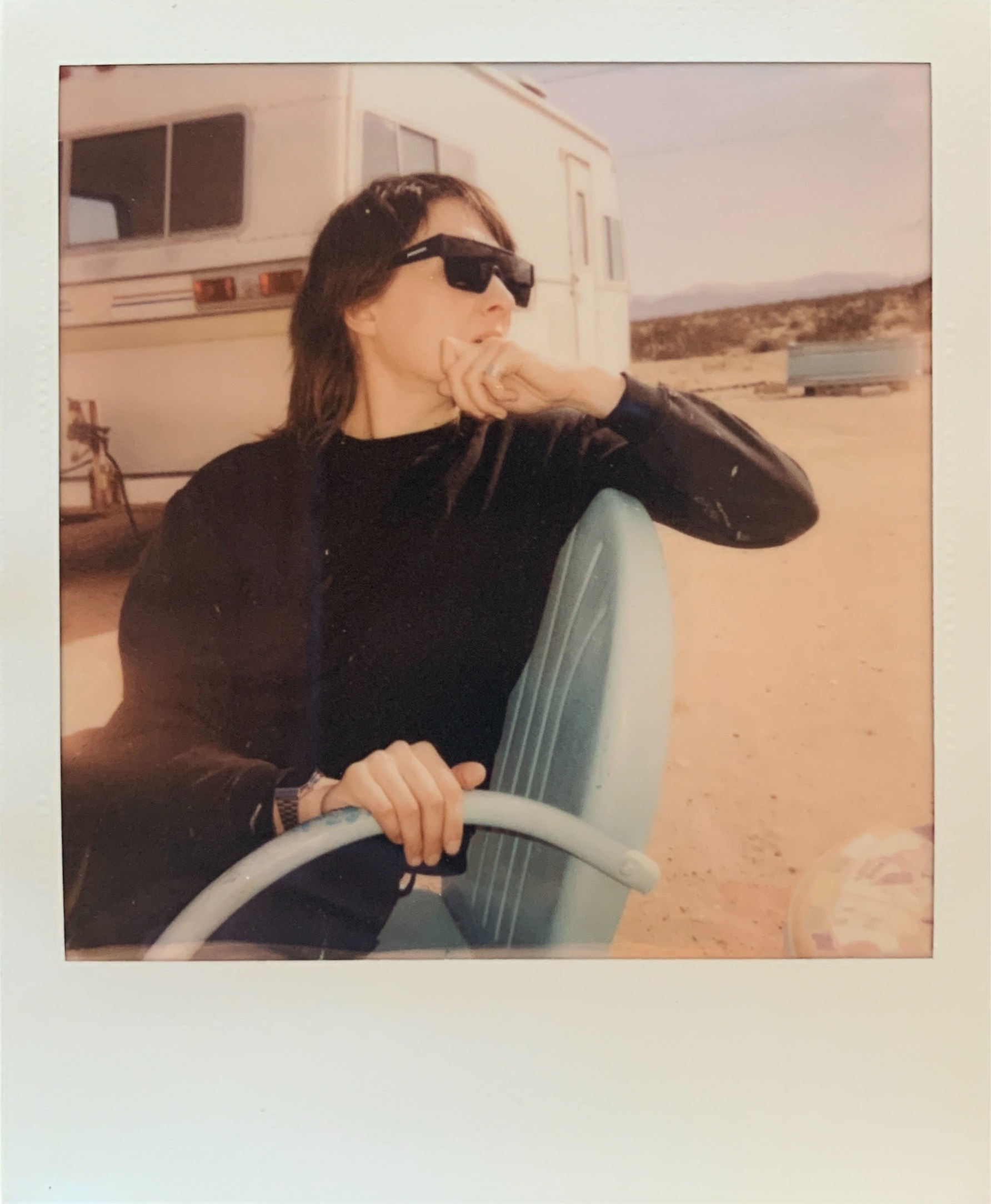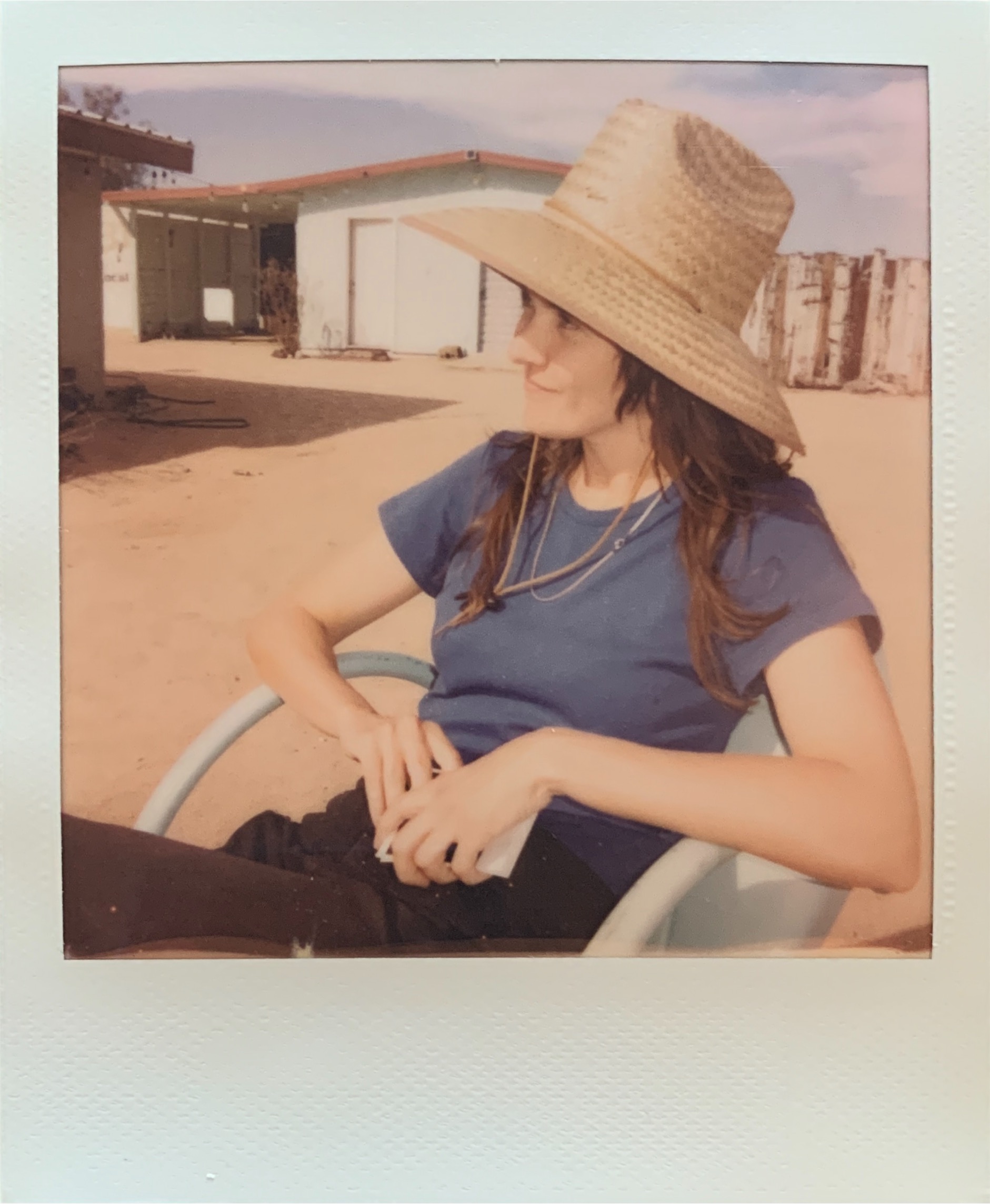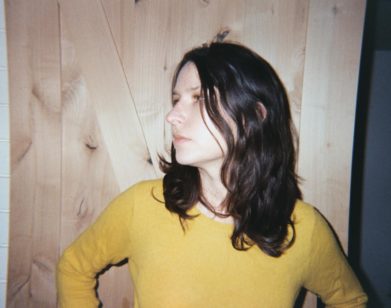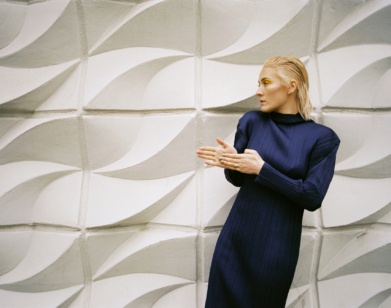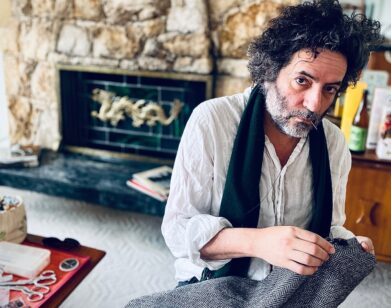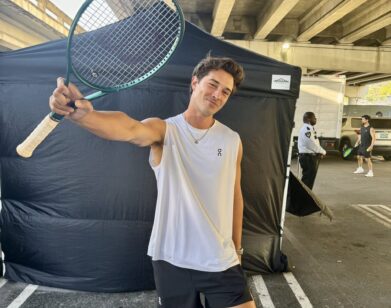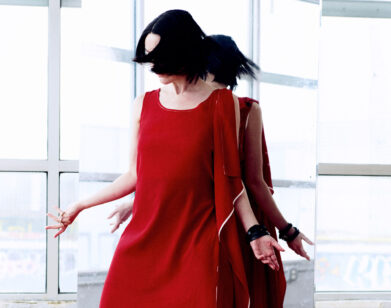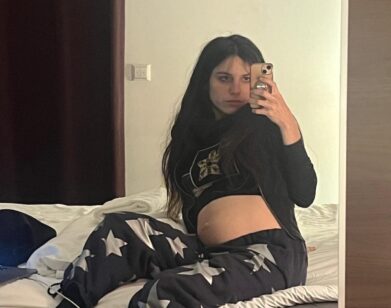BFFs
Courtney Barnett and Cate Le Bon Are Back Together At Last
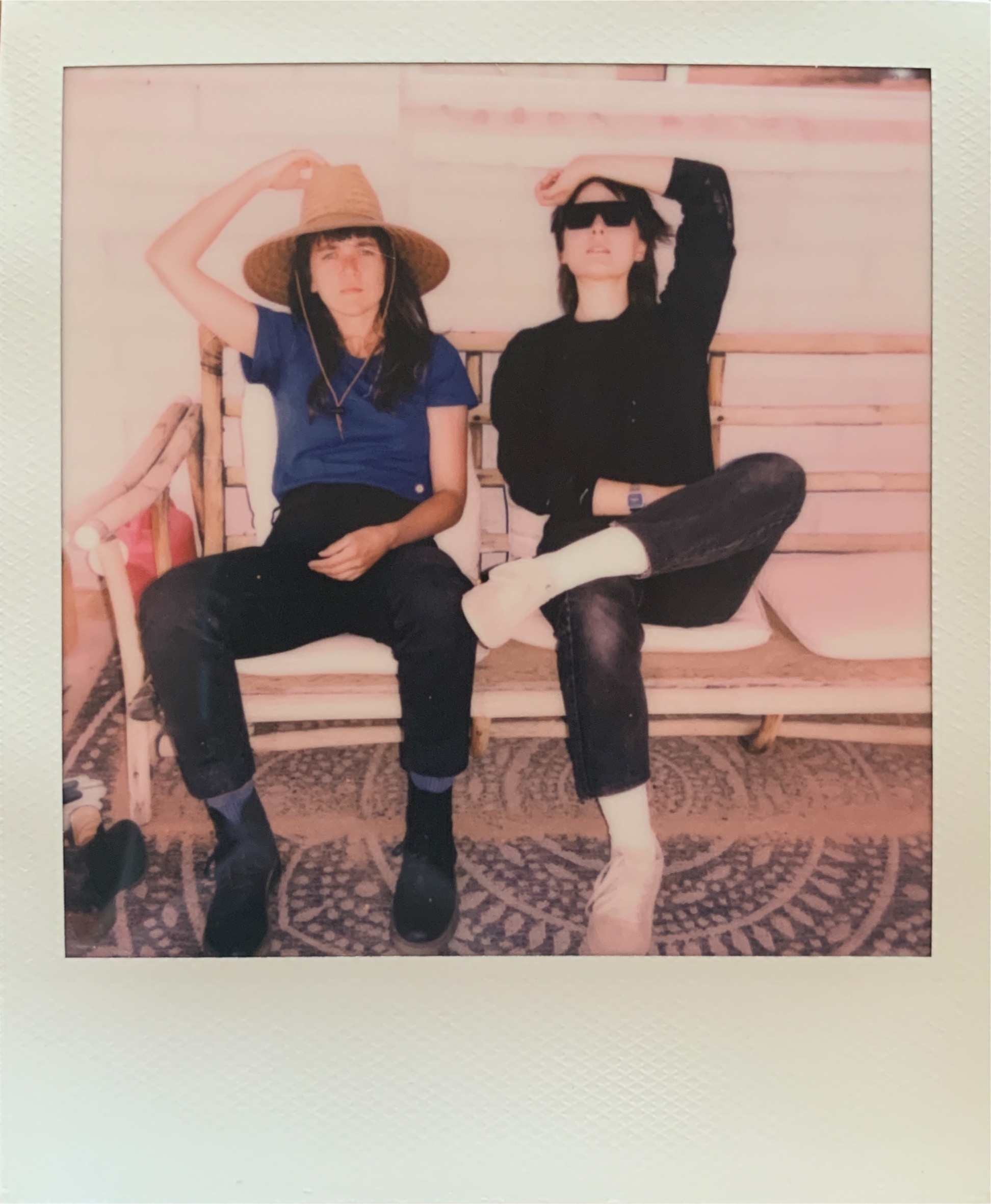
Courtney Barnett and Cate Le Bon have missed each other. The two rock artists—one hailing from Melbourne, the other from Cardiff—have crossed paths a number of times in their careers, but it wasn’t until a stint recording their respective albums last year in Joshua Tree that they connected for the first time. Given the pandemic, it was also the last. For Barnett, the intervening months have been introspective—even solitary. Last week, the 34-year-old artist released her third studio album, Things Take Time, Take Time, the fruit of 2020’s Joshua tree labors. Glittering with wry lyrics and spare instrumentation, Barnett’s 10 tracks have the raw, intimate feel of demos, marking a pivot from her standard silken-voiced ironic punk fare. Le Bon, for her part, spent lockdown in Wales, where she continued work on her sixth studio album, Pompeii, from a bedroom she hadn’t revisited for more than 15 years. This week, the 38-year-old artist released “Moderation,” an ephemeral, heady single off the forthcoming record. In honor their recent releases, we couldn’t resist a chance to reunite the pair. Below, Barnett and Le Bon sat down—in Joshua Tree, once again—for a chat about creative confidence, making music without an audience, and to reread their old texts. —MARA VEITCH
———
CATE LE BON: So, Courtney Barnett.
COURTNEY BARNETT: It’s funny because the last time we saw each other was also here.
LE BON: It was probably the last social event we ever went to.
BARNETT: The last hurrah. It’s kind of surreal.
LE BON: My perspective of time has completely disintegrated. When you think about it, that was almost two years ago. But somehow, we both managed to make stuff during that time. I ended up making a record at the height of the pandemic in the U.K., because I got trapped in Wales. But you are always moving, always busy, always touring. It must have been quite surreal for you to find yourself stationary for an indefinite amount of time.
BARNETT: It was kind of jolting. It was definitely the longest I’ve been in one place, and I was by myself a lot of that time. I found the unknown future element hard to navigate. It was hard to start something when you didn’t know where it was going to end. But that was good, as well—learning how to create without an outcome in mind.
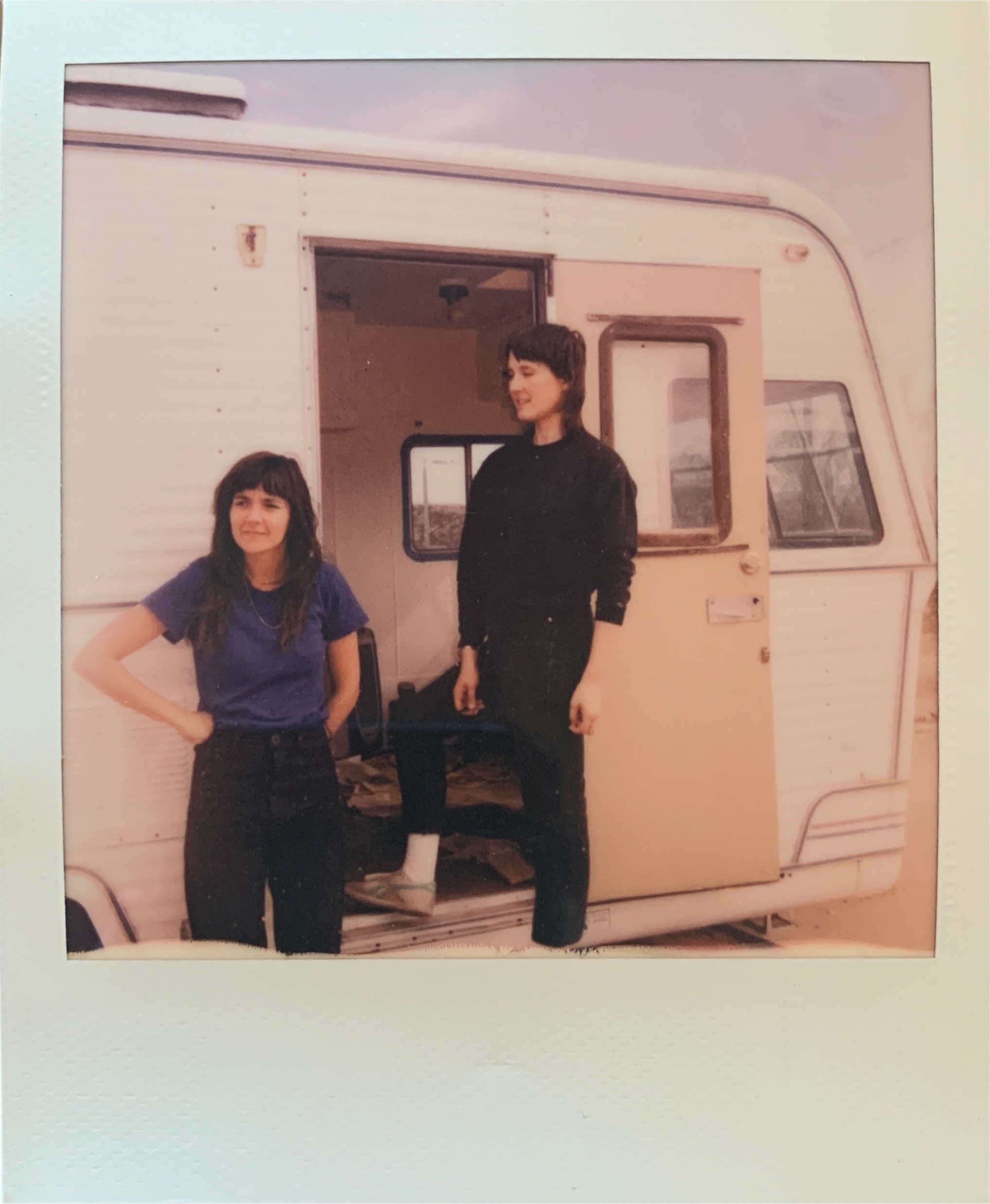
LE BON: You try to create in a vacuum, to close the window to the outside world. A lot of the time that means trying to mimic the conditions that you had when you were a kid. But this was different, we didn’t even know if this music would ever be heard. I had the sense that I might never finish this record, for whatever reason.
BARNETT: Looking back, I can see what you mean, that the uncertainty brought this slightly naive element back into play. Did the pandemic change your album, or the way that you made your album?
LE BON: Yeah. I mean, I was always going to record somewhere remote, I had plans to go to Chile or Norway. But I ended up in a house that I lived in 15 years ago, in Cardiff. That was a vacuum that I hadn’t really planned for.
BARNETT: I know.
LE BON: Can you hear the differences in your new record?
BARNETT: Kind of. I reverted to the experience of recording a lot at home, like my early songs. Back then, I’d downloaded a very fake version of Pro Tools off the internet, and I was living in a shared house, so my recordings always sounded quite DIY, but also soft, because I didn’t want to sing too loudly because I didn’t want to make too much noise for the neighbors. So that made the writing smaller and more intimate.
LE BON: To me, this one is texturally different from your past records. There’s that softness there. The fabric feels different, even though it’s still so recognizably you. There’s this escapism in the instrumentation as well. It’s really beautiful. On every listen, something different pokes through.
BARNETT: That’s a nice way to put it: escapism. In the past, I just stuck with an idea and tried to make it work. This time, I was trying things in different ways—taking them apart and starting again.
LE BON: It’s never time wasted, it’s just a little exploration.
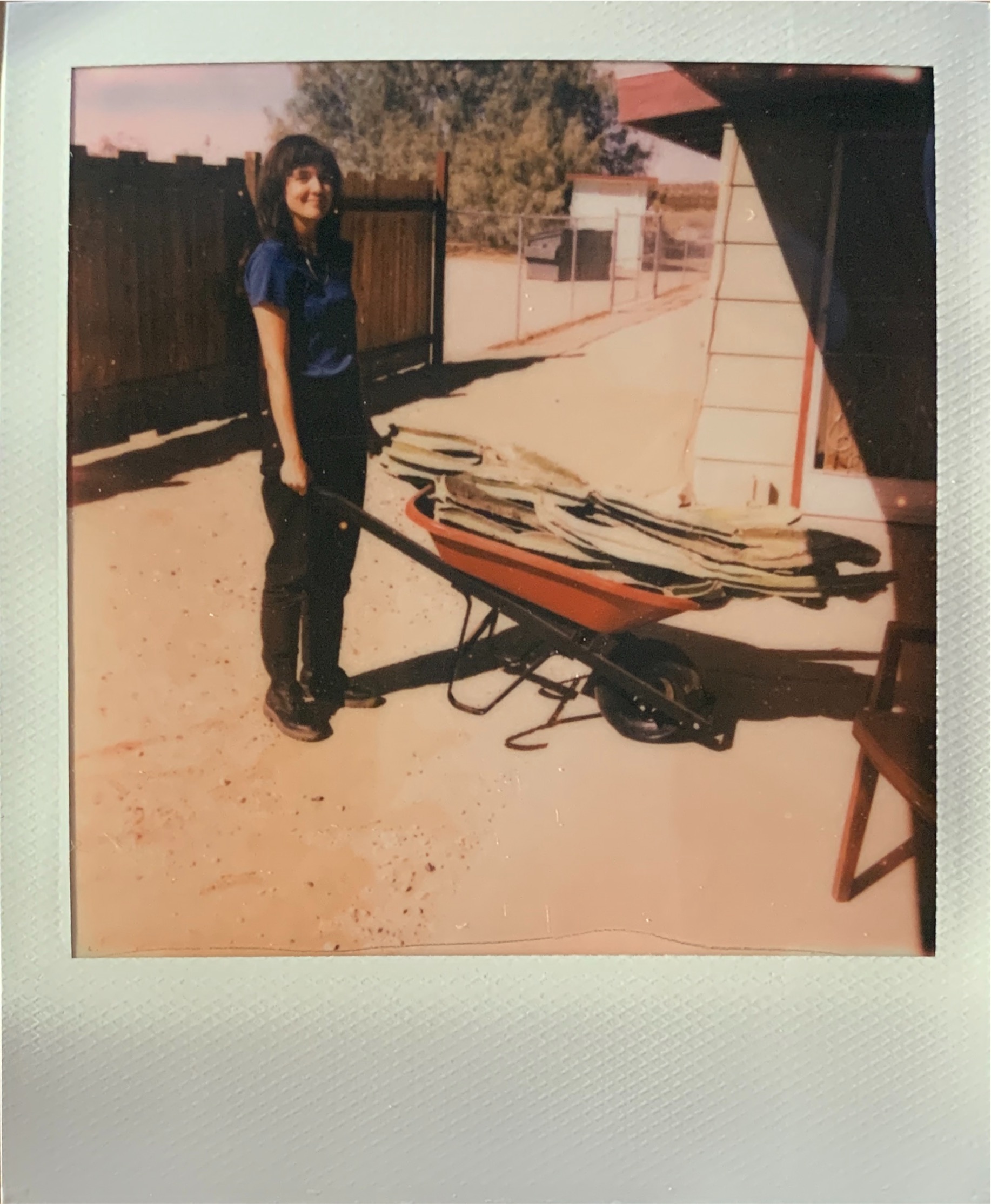
BARNETT: This is the first time I haven’t made an album in a two-week block, apart from the album with Kurt [Vile, Lotta Sea Lice] . Usually, I book the studio and then we just work as much as we can. There is something really great about that, because you capture a lot of live stuff, but this album was spaced out. We did a week in December, a week in February. I liked it.
LE BON: It’s nice, isn’t it? Has it changed how you’ll make the next record, or is it too soon to decide that?
BARNETT: No, I have been thinking about it. I feel really inspired by making this record. I’m excited to be open about the next project, and not have those set ideas of what it’s going to become. I want to just trust the process. Do you have little tricks you use if you hit a wall? I feel like I’m constantly trying to trick my brain into thinking differently.
LE BON: A lot of natural wine. [Laughs] That’s a good trick. No, I don’t know. I guess I just try to annihilate any sense of identity that I have. The pandemic really helped with that. It gives you the confidence to just go, “Oh fuck it, no one’s going to hear it, anyway. We’ll all be dead.” It’s a way to give yourself the freedom to make what you need to make.
BARNETT: So, natural wine, and annihilate your identity.
LE BON: The world is ending, so who cares?
BARNETT: It definitely puts things into a different perspective.
LE BON: How do you feel about playing live again?
BARNETT: I’m excited. I think it will be fun. I have this newfound gratitude for getting on a stage, and playing music to strangers around the world.
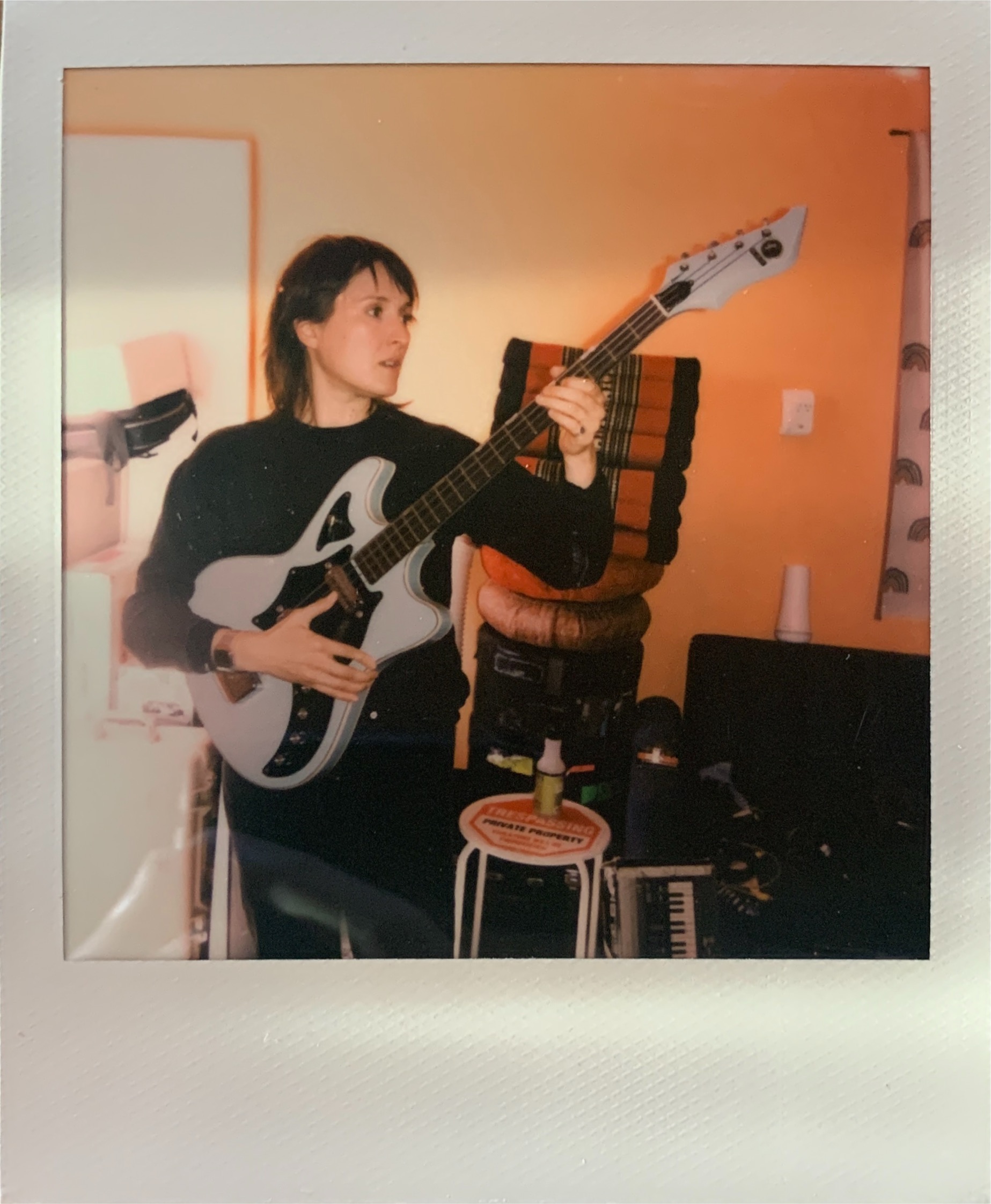
LE BON: I really felt that when I saw you play in Marfa last month. I realized I’ve never seen you play live before. It was absolutely joyful. I wanted to cry. Your gratitude felt so real, and you could feel it in the crowd. That sense of, “Oh my god, this is what live music is for. This is how it’s supposed to make you feel.” It was so good, Courtney. Tim and I just totally fell in love with you.
BARNETT: Aw, shit. That show was really special. After a year and a half of not playing, I was so nervous. I had a moment like that during your set at Rough Trade. I think that’s the only time I’ve seen you play. It’s funny, because I feel like I had a terrible show that night—
LE BON: Mine was so bad. I might never be booked again.
BARNETT: —And now, we’re both telling each other that it was actually a great show.
LE BON: Oh no, I’m embarrassed.
BARNETT: I was really upset with myself after that show. There was some weird self-esteem thing in me that kicked in. It’s been constantly fluctuating throughout my life, but that night it was on high alert. It’s a constant battle for me to let go of that fucking voice and just be like, “Actually people are—”
LE BON: —”They’re here, and they’re enjoying it.” It’s hard to let that go. After your set in Marfa, do you know what I realized? I’ve never introduced myself on stage before. I’ve always been too embarrassed to say my own name. I watched you go up there and go, “Hi, my name is Courtney Barnett, and I’m from Melbourne, Australia.” It gave me this thrill. Since then I’ve played three piano shows, and I made myself give an introduction.
BARNETT: Nice! I love your piano shows. I’ve listened to your album so much, and those shows just show all these songs in a totally different light. There was something so calming about it. I want a whole piano album.
LE BON: I’ll make that just for you. It’s kind of nice to be scared sometimes, isn’t it? Those nerves make it real.
BARNETT: Yeah. I feel like we both do this thing when we’re making an album or writing a song, where one day we think it’s great and the next we think it’s horrible.
LE BON: Mm-hmm.
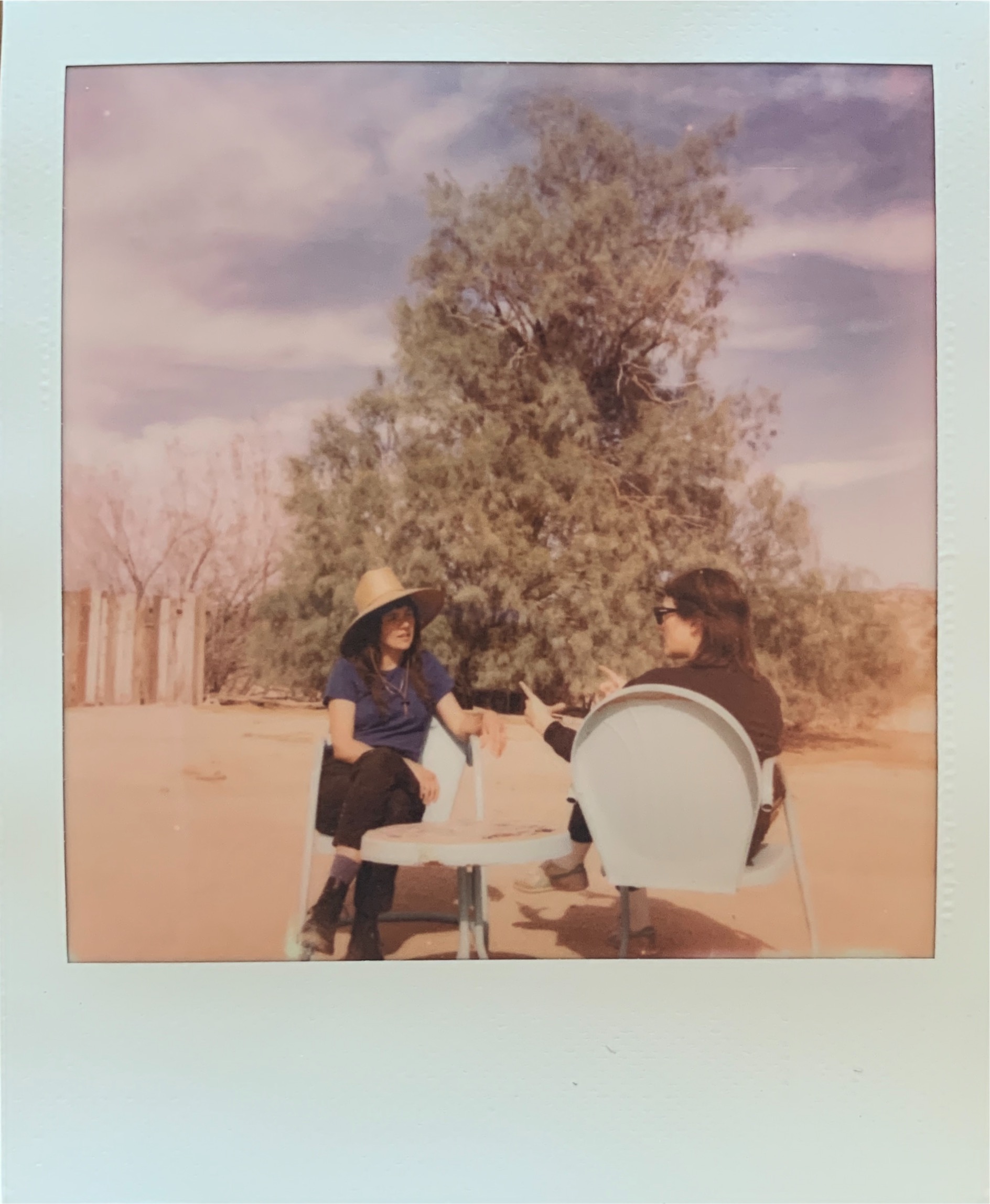
BARNETT: Did that happen to you on this album?
LE BON: Yeah. That intense feeling of hating something, and then being so excited by it, is just the process. But even when I’m in the hating phase, there’s still a part of me that knows I stand by the work. Even the ones I have to leave behind because I can’t make them work, I know on some level that I really like them.
BARNETT: Those moments are important. Those songs are a crucial stepping stone to the song that you love more. I mentioned in a recent interview about my new album that I’d thrown some songs away. It keeps coming up in interviews, and I’m like, “Well, I didn’t throw them away exactly…” It sounds like I hate them, but they’re crucial to the process. You need to expel those ideas, even if they don’t come together the right way.
LE BON: You’ve got to put it aside, or it can clog up the whole process, can’t it? It’s the same as killing your darlings. Sometimes you get a song that’s sucking all the air out of the record. When you take it away, and everything else kind of makes more sense.
BARNETT: I was reading back through some of our text messages yesterday…
LE BON: Oh, god.
BARNETT: It’s a really cute conversation. It started in early 2020 when we were both here in the desert making albums. You sent me all these amazing albums to listen to, and we were both very supportive. “How’s the songwriting going?” It was a real journey to read through, actually. Because sometimes you forget that those conversations even happened.
LE BON: For sure. You also don’t realize how much they mean to you.
BARNETT: I remember saying, “I want to paint more.” A couple of weeks later you were like, “I’ve got a gift for you.” I found it so touching. The gift really inspired me to allow myself to be creative in totally different ways. I’ve never told you that, but it’s the truth. It set this whole other path in motion.
LE BON: It was the beginning of our friendship, I suppose. It was so special to spend that time getting to know you. Then, we spent the whole pandemic trying to figure out when we could drink wine together.
BARNETT: We kept saying, “One day, we’ll be back in Joshua Tree and hanging out.” And now—
LE BON: —Here we are.

